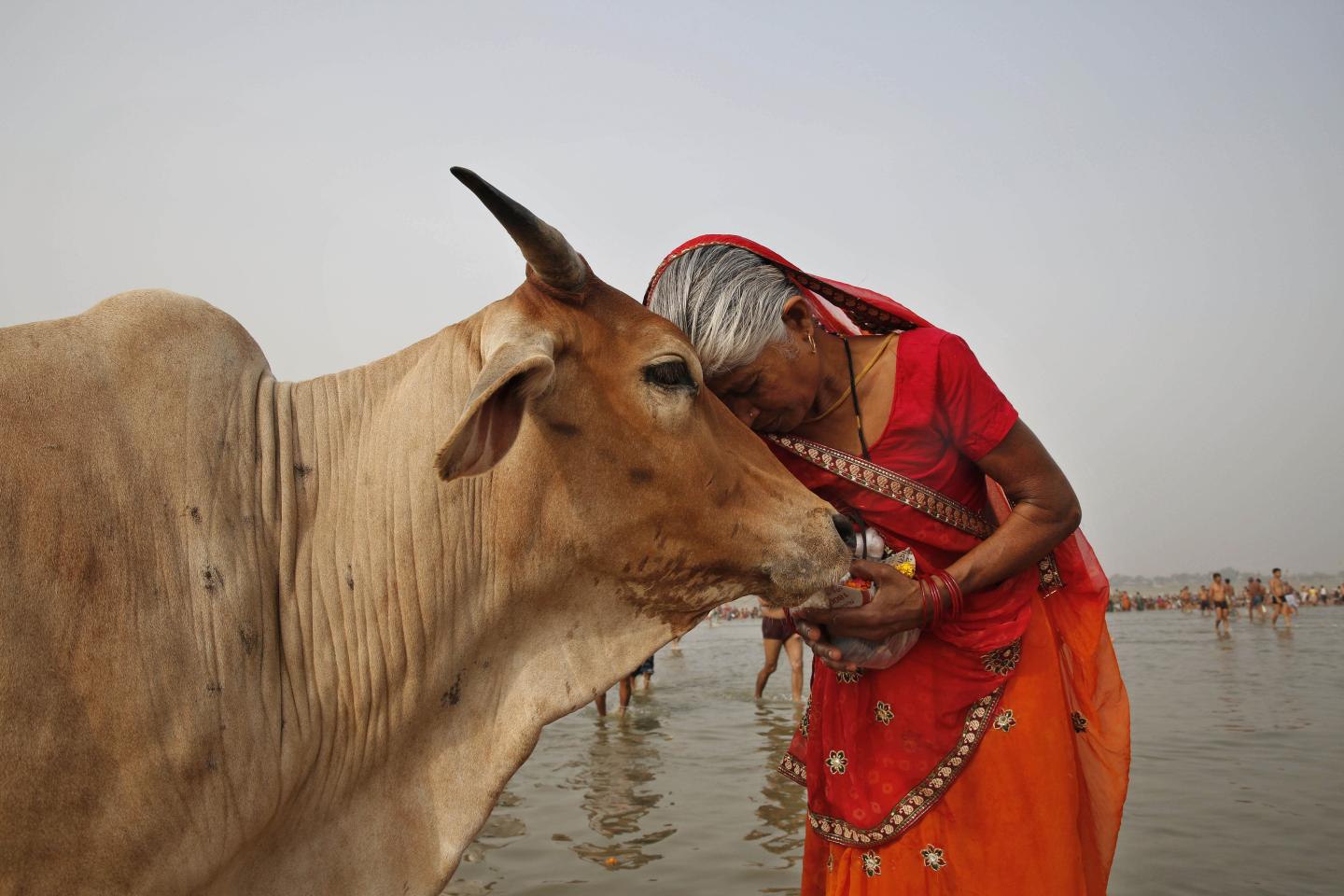
Credit: Vivek Kapur, Penn State
UNIVERSITY PARK, Pa.–Skin tests that can distinguish between cattle that are infected with tuberculosis (TB) and those that have been vaccinated against the disease have been created by an international team of scientists. The traditional TB tuberculin skin test shows a positive result for cows that have the disease as well as those that have been vaccinated against the disease. By distinguishing between these two groups, the new tests will facilitate the implementation of vaccination programs that could considerably reduce the transmission of this infectious bacterial disease from cattle to cattle and humans.
“TB kills more people globally than any other infectious disease. In fact, three people die every minute from the disease,” said Vivek Kapur, professor of microbiology and infectious diseases and Huck Distinguished Chair in Global Health, Penn State. “What is less widely known is that cattle in many low- and middle-income countries are not only infected with and suffer horribly from tuberculosis, but also represent important reservoirs for transmission of the disease to humans through the consumption of unpasteurized milk or dairy products and co-habitation with infected animals.”
The team created its tests–which are described in the July 17 issue of Science Advances–by targeting specific proteins, previously identified by scientists from Denmark and the United Kingdom, that are missing from, or not secreted by, the widely used vaccine strain, called BCG. The ability to express these proteins were lost when the bacterium was adapted for use as a vaccine more than a hundred years ago. By indicating the presence or absence of reactivity to these “missing” proteins, the new tests can distinguish between an animal that is infected with the natural form of the disease and one that has been vaccinated.
“Our diagnostic reagent is a simple cocktail of synthetic peptides representing antigens that are present in the naturally occurring TB bacteria but not recognized by the immune system following BCG vaccination,” said Sreenidhi Srinivasan, graduate student in molecular, cellular and integrative biosciences at Penn State. “These antigens, when applied to the skin, cause an immune reaction in cows that have TB, whereas no reaction occurs in animals that have been vaccinated with BCG.”
The publication also highlights a promising alternative test format based on a recombinant fusion protein that is comparable in performance to the peptide cocktail. This protein has been developed for the United Kingdom government to be compatible with its potential cattle vaccination program, although the peptide-based test potentially obviates regulatory hurdles in countries that place greater restrictions on the use of products from genetically modified organisms.
The team assessed the usefulness of its test in cattle in the United Kingdom, Ethiopia and India.
“It worked beautifully, exceeding the performance of the traditional test by clearly differentiating vaccinated from infected cattle,” said Kapur.
Kapur noted that the BCG vaccine, which was developed in the early 1900s from the bacterium that causes disease in cattle and is the world’s most widely used vaccine in humans, has remained largely unused in cattle due to the potential to complicate diagnosis. In fact, the European Union, the United States and many other countries prohibit its use in cattle mainly for this reason.
“While BCG rarely provides sterilizing immunity for either humans or cattle, it has been shown to be effective at preventing a substantial number of infections and protecting against the more severe forms of human TB,” he said. “However, the inability to tell whether a cow has the disease or has simply been vaccinated has prevented governments from implementing cow vaccination programs, leaving both animals and humans vulnerable to infection.”
Instead of vaccinating cattle, many countries have used a “test and slaughter” approach to control TB in these animals. The highly successful method effectively eliminated TB in the United States nearly 100 years ago and is still used in high-income countries around the world. Unfortunately, test-and-slaughter remains unfeasible in most low- and middle-income countries, where small and marginal cattle owners cannot afford to lose what often represents their primary source of income and nutrition. Additionally, in some countries, such as India, the slaughter of cattle is illegal due to the animal’s cultural and spiritual importance.
Treating TB-infected cows with antibiotics is not feasible either. While humans who contract TB often can be treated–as long as they do not contract a strain that is resistant to antibiotics–treating cows with antibiotics is expensive and can remove the animals from their service of providing milk, sometimes for years.
“The novel diagnostic test we have developed has the potential to replace the current standard test that has been in use for close to a century now,” said Srinivasan. “Apart from being economical and easy to manufacture and to standardize quality control, the new tests enable reliable differentiation between infected and vaccinated animals, which is one of the most important limitations of the current method. Access to such tests pave the way for implementation of vaccination as an intervention strategy in settings where test-and-cull strategies are not affordable for socioeconomic reasons.”
###
Other authors on the paper include Laurel Easterling, graduate student in animal science, Penn State; Maroudam Veerasami, director, Cisgen Biotech Discoveries Private Limited; Gareth Jones, Sabine Steinbach, and Thomas Holder, research scientists, Animal and Plant Health Agency, United Kingdom; Martin Vordermeier, team leader, Animal and Plant Health Agency, United Kingdom, and professor of immunology, University of Aberystwyth, United Kingdom; Aboma Zewude, veterinary laboratory technologist, Adis Ababa University, Ethiopia; Abebe Fromsa, associate professor, and Gobena Ameni, professor, Aklilu Lemma Institute of Pathobiology, Addis Ababa University, Ethiopia; Douwe Bakker, technical consultant, Lelystad, The Netherlands; Nicholas Juleff, senior program officer, Bill & Melinda Gates Foundation; Glen Gifford, Chargé de Mission, World Organisation for Animal Health (OIE), France; and R.G. Hewinson, Sêr Cymru Chair, University of Aberystwyth, United Kingdom.
The Bill & Melinda Gates Foundation, along with the Department for Environment, Food and Rural Affairs (Defra) and Department for International Development in the United Kingdom, supported this research.
Media Contact
Sara LaJeunesse
[email protected]




